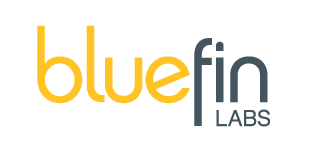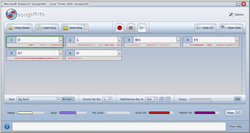
Adware, often called advertising-supported software by its developers, is software that generates revenue for its developer by automatically generating online advertisements in the user interface of the software or on a screen presented to the user during the installation process. The software may generate two types of revenue: one is for the display of the advertisement and another on a "pay-per-click" basis, if the user clicks on the advertisement. Some advertisements also act as spyware, collecting and reporting data about the user, to be sold or used for targeted advertising or user profiling. The software may implement advertisements in a variety of ways, including a static box display, a banner display, a full screen, a video, a pop-up ad or in some other form. All forms of advertising carry health, ethical, privacy and security risks for users.

A television advertisement is a span of television programming produced and paid for by an organization. It conveys a message promoting, and aiming to market, a product, service or idea. Advertisers and marketers may refer to television commercials as TVCs.
A digital video recorder (DVR) is an electronic device that records video in a digital format to a disk drive, USB flash drive, SD memory card, SSD or other local or networked mass storage device. The term includes set-top boxes with direct to disk recording, portable media players and TV gateways with recording capability, and digital camcorders. Personal computers are often connected to video capture devices and used as DVRs; in such cases the application software used to record video is an integral part of the DVR. Many DVRs are classified as consumer electronic devices; such devices may alternatively be referred to as personal video recorders (PVRs), particularly in Canada. Similar small devices with built-in displays and SSD support may be used for professional film or video production, as these recorders often do not have the limitations that built-in recorders in cameras have, offering wider codec support, the removal of recording time limitations and higher bitrates.
Advertising in video games is the integration of advertising into video games to promote products, organizations, or viewpoints.

Yahoo! Music Radio was an Internet radio service offered by Clear Channel Communications' iHeartRadio through Yahoo! Music. The service, formerly offered by LAUNCH Media, and originally developed by Todd Beaupré, Jason Snyder and Jeff Boulter, debuted on November 11, 1999, and was purchased by Yahoo! on June 28, 2001. Previously, LAUNCHcast combined with CBS Radio beginning in 2009, then iHeartRadio in 2012. The service closed in early 2014.

The Marlboro Man is a figure that was used in tobacco advertising campaigns for Marlboro cigarettes. In the United States, where the campaign originated, it was used from 1954 to 1999. The Marlboro Man was first conceived by Leo Burnett in 1954. The images initially featured rugged men portrayed in a variety of roles but later primarily featured a rugged cowboy or cowboys in picturesque wild terrain. The ads were originally conceived as a way to popularize filtered cigarettes, which at the time were considered feminine.

Bishop Allen is an American indie rock band from Brooklyn, New York, United States. The band's core members are Justin Rice and Christian Rudder, who are supported both on stage and in the studio by a rotating cast of musical collaborators. The band was formed in 2003 and grew out of Rice and Rudder's friendship; it takes its name from Bishop Allen Drive in Cambridge, Massachusetts, where the two lived together after attending Harvard University.

WinFixer was a family of scareware rogue security programs developed by Winsoftware which claimed to repair computer system problems on Microsoft Windows computers if a user purchased the full version of the software. The software was mainly installed without the user's consent. McAfee claimed that "the primary function of the free version appears to be to alarm the user into paying for registration, at least partially based on false or erroneous detections." The program prompted the user to purchase a paid copy of the program.
Microsoft Advertising is an online advertising platform developed by Microsoft, where advertisers bid to display brief ads, service offers, product listings and videos to web users, it provides pay per click advertising on search engines Bing, Yahoo! and DuckDuckGo, as well as on other websites, mobile apps, and videos.
In-game advertising (IGA) is advertising in electronic games. IGA differs from advergames, which refers to games specifically made to advertise a product. The IGA industry is large and growing.

Wieden+Kennedy is an American independent global advertising agency best known for its work for Nike. Founded by Dan Wieden and David Kennedy, and headquartered in Portland, Oregon, it is one of the largest independently owned advertising agencies in the world.
Apple Inc. has had many notable advertisements since the 1980s. The "1984" Super Bowl commercial introduced the original Macintosh mimicking imagery from George Orwell's 1984. The 1990s Think Different campaign linked Apple to famous social figures such as John Lennon and Mahatma Gandhi, while also introducing "Think Different" as a new slogan for the company. Other popular advertising campaigns include the 2000s "iPod People", the 2002 Switch campaign, and most recently the Get a Mac campaign which ran from 2006 to 2009.

Gruen is an Australian television program focusing on advertising, which debuted on the ABC on 28 May 2008. The program is hosted by Wil Anderson and produced by Andrew Denton's production company, Zapruder's Other Films, now part of CJZ. Anderson is accompanied by a panel of advertising industry experts including Russel Howcroft and Todd Sampson.
Pop music automation is a field of study among musicians and computer scientists with a goal of producing successful pop music algorithmically. It is often based on the premise that pop music is especially formulaic, unchanging, and easy to compose. The idea of automating pop music composition is related to many ideas in algorithmic music, Artificial Intelligence (AI) and computational creativity.
Microsoft adCenter Labs, is an applied research group at Microsoft that supports Microsoft adCenter. Microsoft adCenter, is the division of the Microsoft Network (MSN) responsible for MSN's advertising services.

Open Happiness was a global marketing campaign for The Coca-Cola Company that was rolled out worldwide in the first half of 2009, following the company's "Coke Side of Life" advertising campaign. It was developed by the Wieden + Kennedy creative agency.

Bluefin Labs is a defunct Cambridge, MA-based social TV analytics company that uses publicly available social media commentary from Twitter, Facebook and blogs to measure viewer engagement with television shows and ads at scale – historically a costly and complex problem for TV and marketing industries to solve.
Mixpo is an advertising software company, which provides software that allows companies and agencies to execute multi-screen video advertisement campaigns. The company’s services include software that allows clients to create online video ads and VideoVerify, a tool meant to identify fraudulent web publishers who inflate online ad numbers through the use of bots.
Column Five Media is a visual communication agency located in Costa Mesa, California, and Brooklyn, New York, specializing in data visualization, infographics, motion graphics, and social media marketing. The company ranked #291 on the Inc. 500 2013 list of the fastest-growing media companies in the U.S., including #5 of the top 100 media companies, and is most notable for creating and producing the viral video "Child of the 90s" on behalf of Internet Explorer.

Kathleen Hogan is Executive Vice President for human resources and Chief People Officer at Microsoft.












